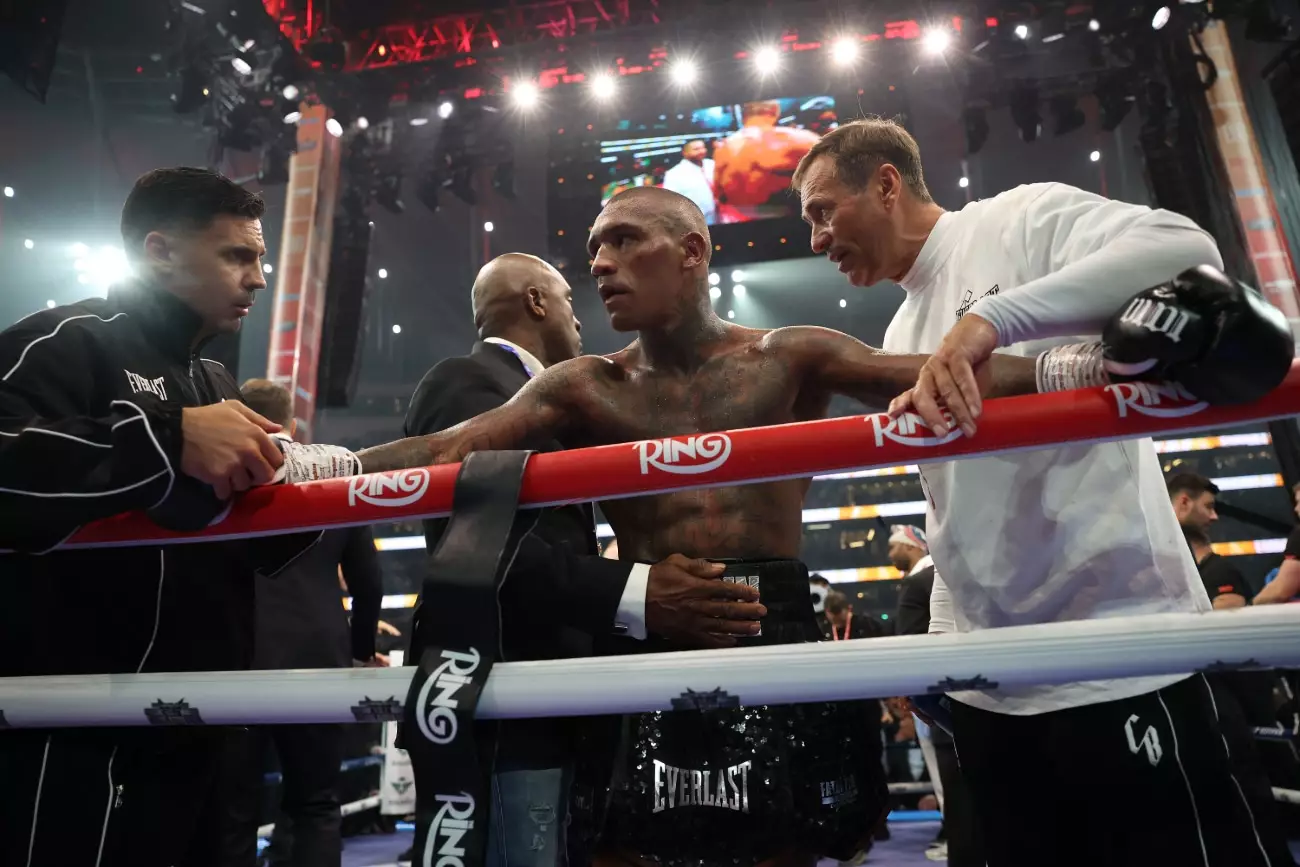In the vibrant world of boxing, narratives are built not just on victories but also on the lessons learned through defeats. Conor Benn’s recent bout against Chris Eubank Jr., though culminating in a unanimous decision loss, has sparked discussions on his ascension in the UK boxing scene. Promoter Eddie Hearn, an influential figure in the sport, believes Benn’s performance has the potential to catapult him into the realm of superstardom. However, this optimistic outlook contrasts sharply with the reality of Benn’s performance, leaving much to ponder about his future in the ring.
Eubank Jr. dominated the match, winning all twelve rounds according to the judges. The scoring—116-112 across the board—might superficially suggest a competitive matchup, but those who watched the fight know better. Early in the first three rounds, Benn managed to showcase some of his skills, yet the tide turned dramatically when Eubank Jr. adapted his strategy to neutralize Benn’s offense. From the fourth round onwards, it appeared as though Benn was merely surviving rather than competing, absorbing a barrage of punches that raised legitimate concerns for his health and future in the sport.
Unmasking the Illusion of Competitiveness
Despite the post-fight glow emanating from Hearn’s commentary, there is a glaring contradiction in his assessment. While he noted the public’s excitement around Benn’s transformation into a “superstar,” the realities of the bout tell a different story. The notion that Benn can contend for world titles at welterweight (147 lbs) or light-middleweight (154 lbs) is questionable at best. As Hearn himself refrained from designating specific fighters whom Benn could realistically defeat in these categories, it raises alarms about the optimism surrounding Benn’s potential.
The irony is palpable; Benn indeed displayed a fighting spirit and resilience, but skill-wise, he was outmatched against Eubank Jr. The final rounds exposed his vulnerabilities, illustrating a stark divide between his performance and the threshold for world-class competition. If Benn were to face any of the current champions in those weight classes, the likelihood of him advancing beyond a few rounds appears slim. Fighters like Janibek Alimkhanuly and Erislandy Lara present formidable challenges that Benn is ill-prepared to face based on his latest showing.
The Pressure of Expectations
Hearn’s determination to cast Benn’s performance in a favorable light must also be viewed through the lens of expectation. Boxing is as much about public perception as it is about athletic prowess. The promoter’s assertion that Benn has become a “superstar” serves to entertain, but it risks painting an elaborate but fragile facade over the substantial void between expectation and achievement.
One cannot ignore the significant damage that Benn may have accumulated. Having endured significant punishment in the match, Hearn’s apprehensions about the impact on Benn’s future seem valid. It emphasizes a critical point in the discourse: is there too much emphasis on bouncing back from defeat, especially in a sport where physical and mental repercussions can be severe?
Further complicating matters is the notion of a rematch. Hearn suggests that a return to the ring against Eubank Jr. could be one of the “biggest fights in Britain.” Yet the question remains—should Benn be thrust back into a high-stakes environment immediately after a taxing defeat? More importantly, how would a rematch benefit his career trajectory and personal health?
Navigating the Future with Caution
The path ahead for Conor Benn is open to speculation, but it must be navigated with caution. If boxing is indeed about tactful strategy, the management of this next phase of Benn’s career will be just as critical as anything transpiring inside the ring. Is it wiser to cultivate a more manageable route back to competitive form before re-engaging in wars that can cut a career short?
As fans and analysts look on, the allure of Benn’s stardom may suggest that he occupies a unique intersection between excitement and caution. The British boxing scene thrives on narratives filled with ambition and exploration of limits; however, success should not be conflated with reckless abandon. Benn’s journey, both in and out of the ring, must now focus on careful decisions that will help him pivot from the shadows of defeat to the glowing potential Hearn envisions. The ball is in Benn’s court; it’s up to him whether he chooses to play it safe or gamble again, but the stakes have never been higher.

